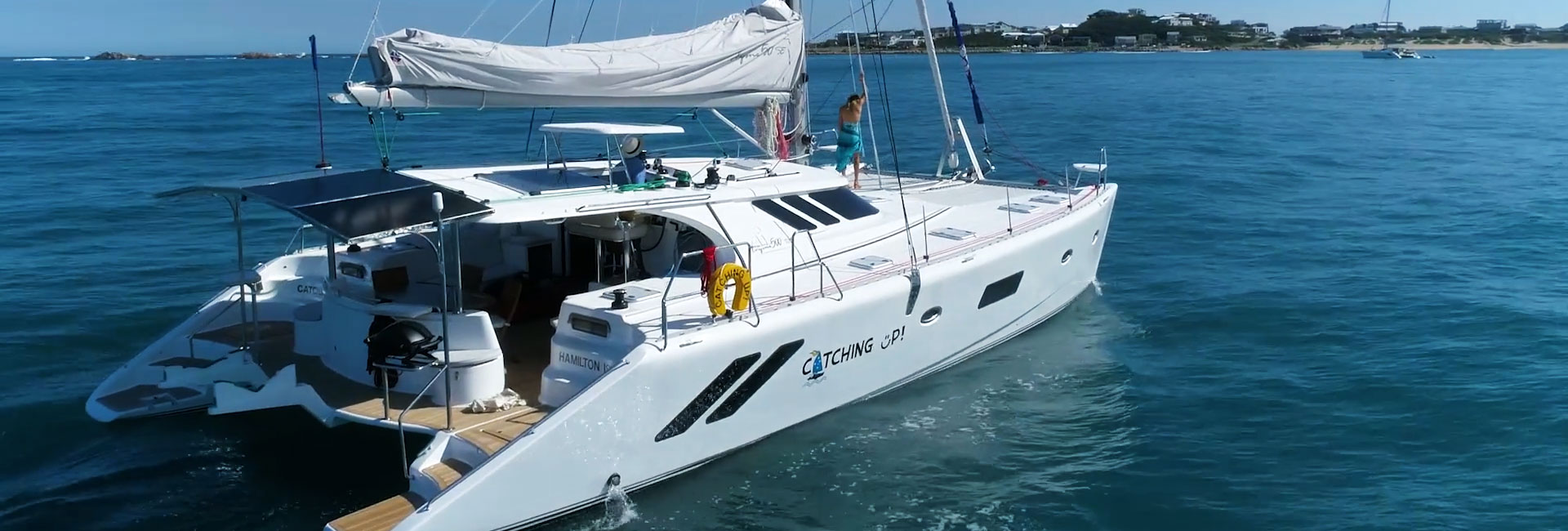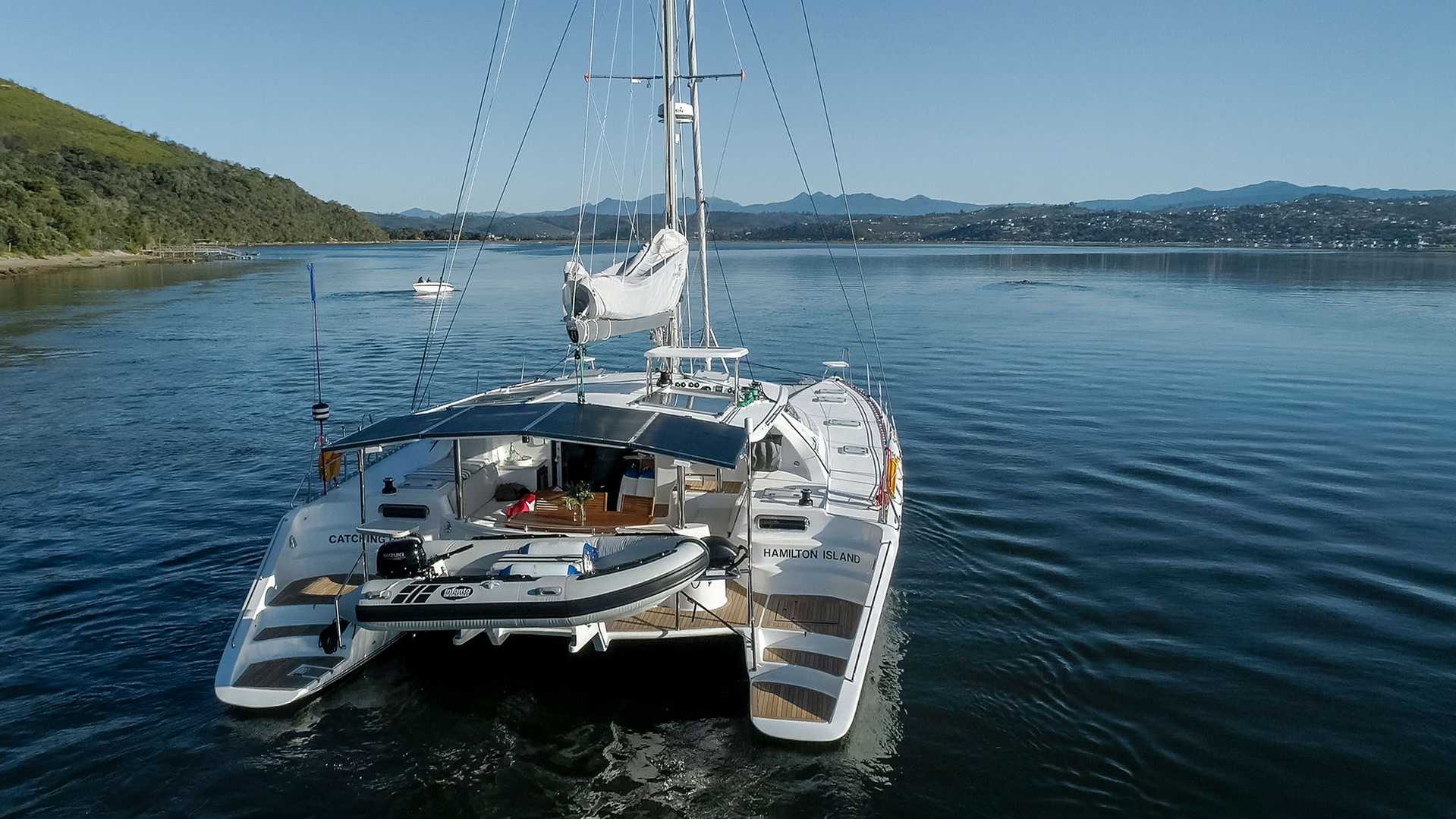
As a yachting enthusiast, you're no doubt familiar with the many joys of sailing. The sun on your face, the wind in your hair, living close to the elements and enjoying the sense of freedom that comes with this unique lifestyle. But how aware are you of the many benefits that come with adding yacht solar power to your vessel?
Whether completely solar-powered or only boosted with solar power as an additional, green energy source, sun-powered yachts are fast becoming a hot new trend among boat builders and yacht owners alike.
Yachts boosted by solar power are increasingly in demand these days, both for their lessened impact on the environment as well as their increased energy efficiency.
So, let's dive into everything you need to know about renewable energy or solar-powered yachts.
We already know that using solar power is an environmentally friendly choice and that solar-powered yachts have reduced carbon emissions. But there are many more benefits to adding solar power capability to your yacht.

Solar energy is free and limitless. A solar-powered boat eliminates the cost of fuel forever. Even if your yacht makes use of both fuel and solar power, you will still enjoy significant savings on fuel.
Though solar-powered boats are not completely silent, they are a lot less noisy than generator-powered boats. Reduced noise levels will ensure that your boat causes less disturbance to marine life and will also make for a more peaceful and pleasant cruising experience for you and your passengers.
As long as the sun is shining, solar energy will continuously charge your yacht’s battery, even when the boat is not in use. This energy can then be stored for later use.

Having a yacht with solar power capacity will help ensure that you don't have to miss out on any “land pleasures”. Having a fully charged battery will allow you to play games on a console, heat up food in a microwave and watch Netflix to your heart's content. Not to mention keeping all your devices charged whilst you're out on the water!
To be honest, there aren't too many disadvantages to having a solar power system installed on your yacht. However, some potential drawbacks include:

Solar panels installed on a yacht work in much the same way as they do on the roof of a building.
Solar panels are made of silicon crystals which have been treated so that the electrons in the crystals move, creating an electric current when the sun shines on them. This process creates electricity. Your yacht’s solar power battery will store any surplus energy so that you can continue to use this energy long after the sun has set.
Solar panels function at their best on very sunny days or in very sunny locations. On partially sunny days or very cloudy days, solar panels will produce less energy.
When installing solar power on your yacht, it's important to buy specialist marine solar panels. These marine solar panels are waterproof and built to withstand conditions at sea. Having the right solar panels fitted on your yacht will help to eliminate some of the drawbacks of using solar power on your boat.
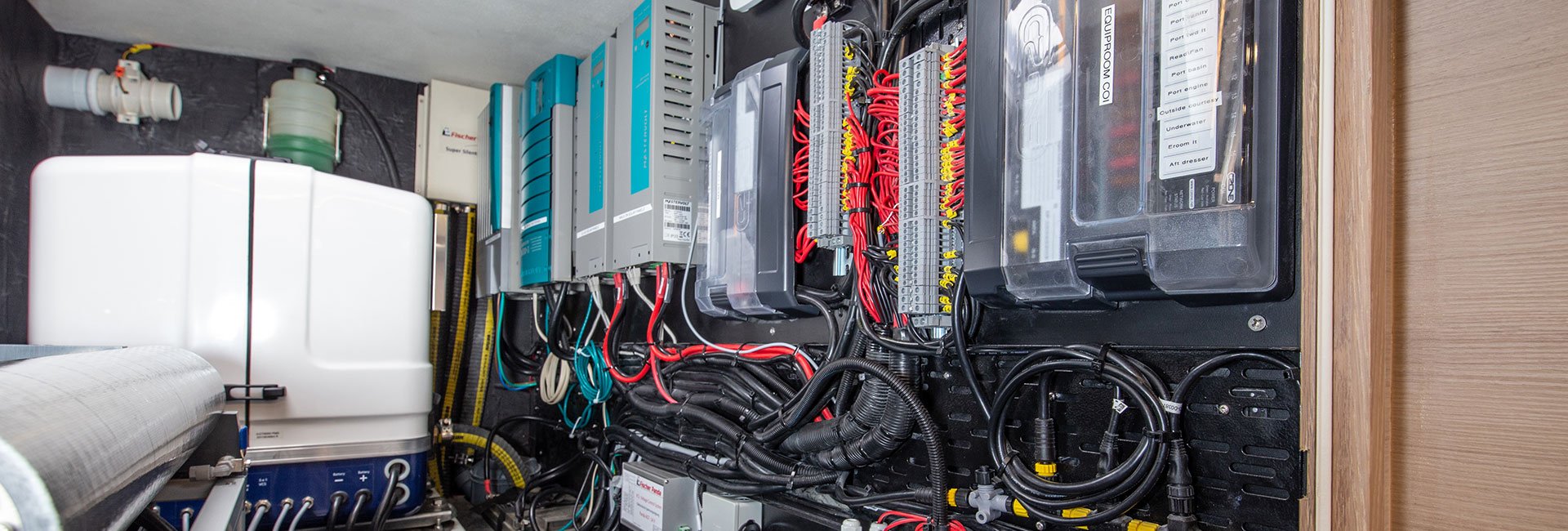
Installing solar power on your boat doesn't have to be complicated. The four main components of a solar power system are:
On a solar power system, the solar panels and the battery work hand-in-hand. The solar panels generate the energy while the battery stores it. You'll find that most marine solar panel systems require charge controllers to ensure the battery doesn't receive a higher voltage than it is capable of handling, which could lead to damage.
The inverter converts DC (direct current) into AC (alternating current). If you're using appliances like microwaves, TVs, or hairdryers on your yacht, you will require an inverter.
These components can be bought separately, but you can also buy solar panel kits that include some or all of the parts required. Some marine solar panel kits even include wires, cables, and mounting equipment to get the system up and running.
Monocrystalline and polycrystalline are the two main types of solar panels and each type comes with its own advantages and disadvantages. Let's take a closer look at each option.
These solar panels are made with the highest-quality silicone and are also the most space-efficient option. Monocrystalline solar panels also have the highest heat tolerance and are the longest-lasting panels available. However, they are more expensive and less shading tolerant than polycrystalline solar panels.
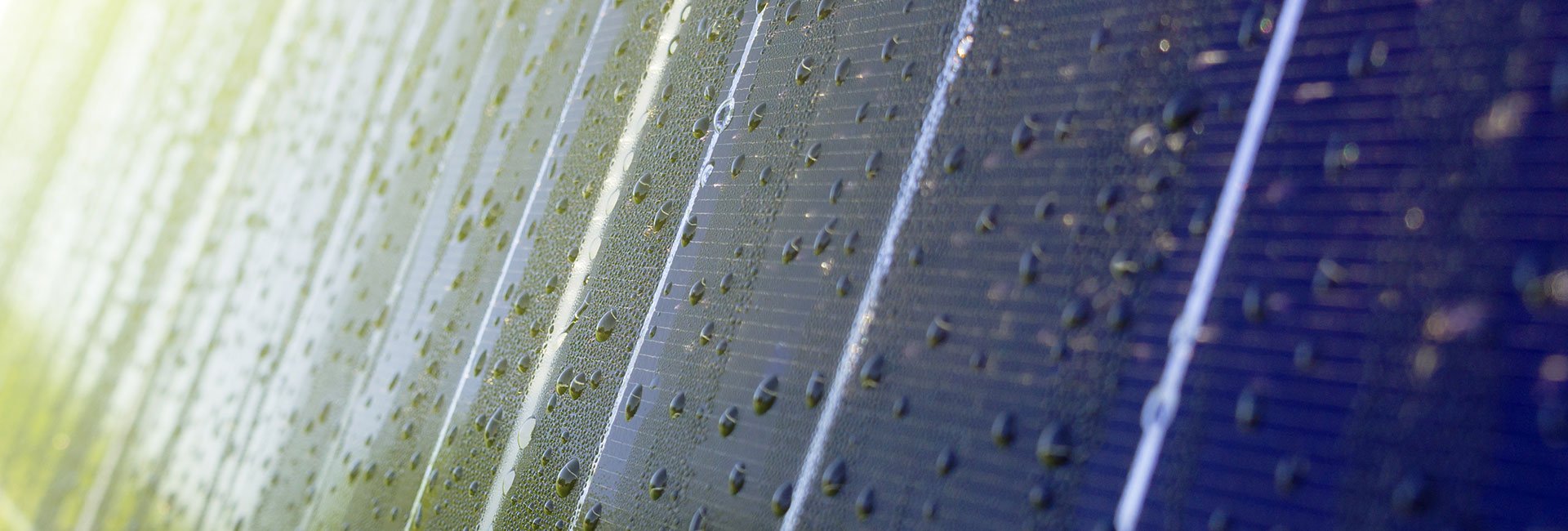
Polycrystalline solar panels have a simpler manufacturing process. They are not as space-efficient as monocrystalline panels, but they are more cost-efficient and are not as sensitive to shading.
Rigid solar panels are the best option for yachts. They are economical, durable, shade-tolerant, and efficient, with the longest life span. However, their weight, windage, and square shape could make them a potentially awkward fit on certain curved boats.
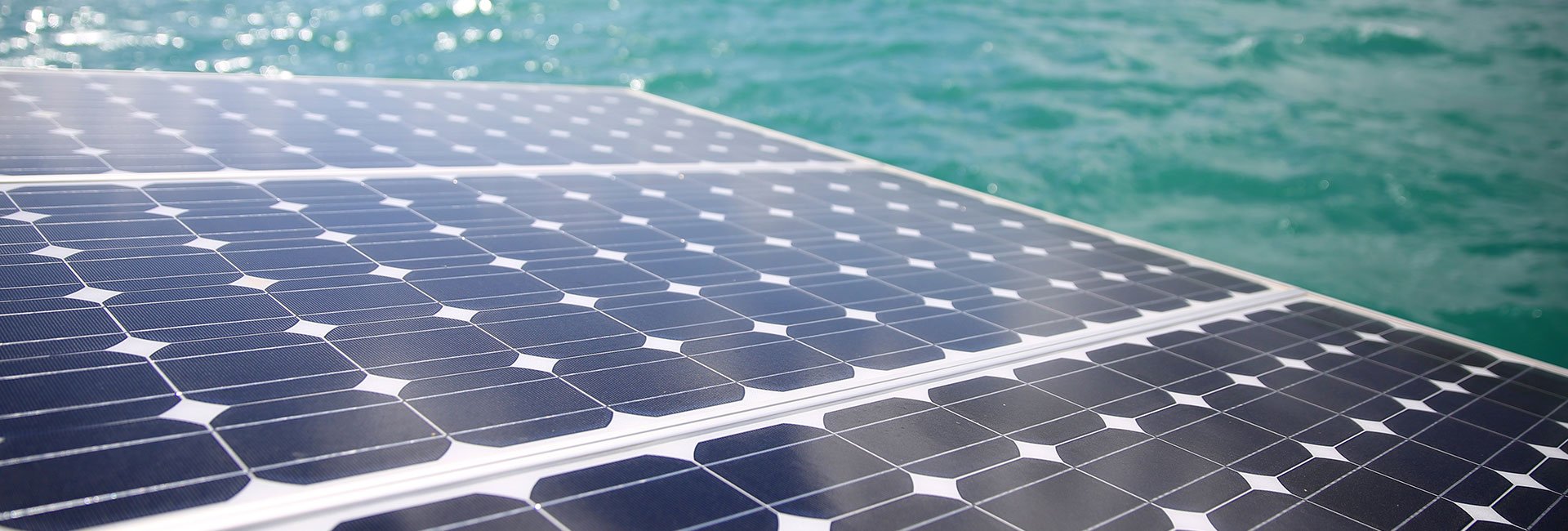
The efficiency and durability of semi-flexible solar panels vary depending on their composition as well as their manufacturer.
Although they don't bring the same economy, efficiency, or lifespan that rigid solar panels do, semi-flexible solar panels do offer extreme ease of installation. Being thin, lightweight, and mouldable, they can be bolted, taped, or adhered with strong magnets to either canvas or the deck surface.
All things considered, rigid solar panels are still the best recommendation for yachts.
If you're not yet sure about permanently installing a solar panel on your yacht, you can also make use of a portable solar panel. Did you know that you can make any type of solar panel portable?
How you'll go about installing a solar panel on your boat depends on the type of solar panel – and where you want to install it. You can fit a rigid solar panel to the yacht’s deck using aluminium brackets. If you want to attach a solar panel to the boat’s pushpit or guardrails, it's likewise best to use brackets and screws. Tying the solar panel to the rails or fittings is possible, but this is not recommended as this method is less secure.
It is possible to drill through the frame of a rigid solar panel, but remember never to drill through the active surface of the panel, as this will cause permanent damage.
It is also possible to attach flexible solar panels to the deck of your yacht using solar panel adhesives like Sikaflex 252i.
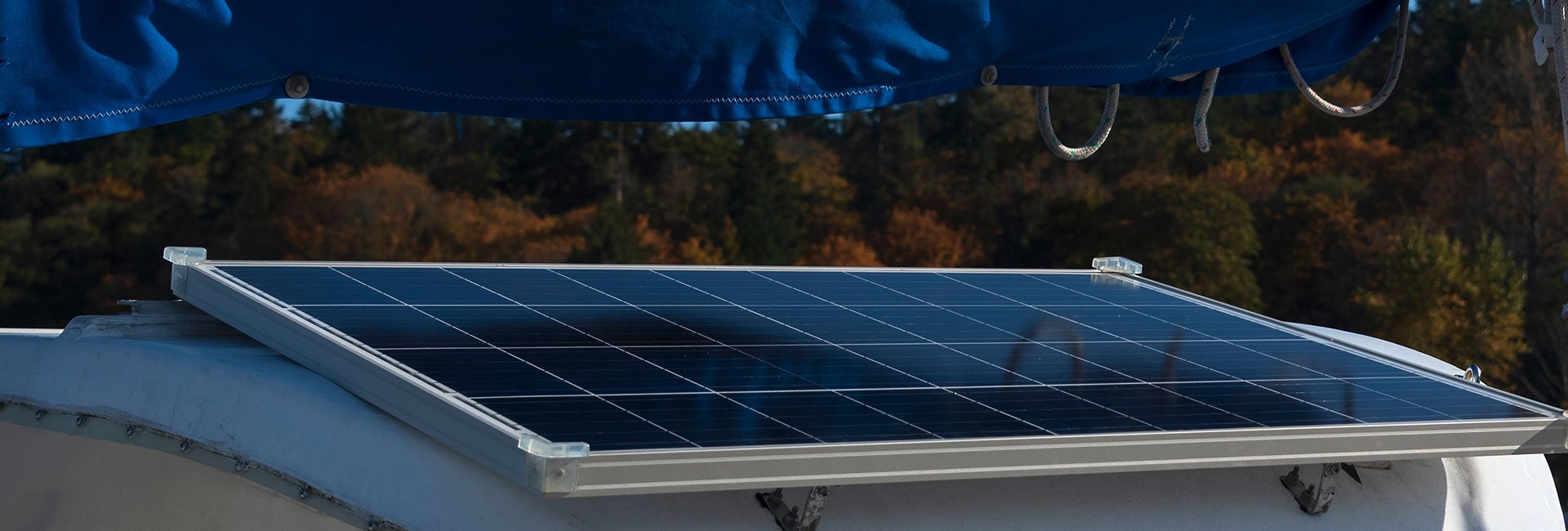
How much you'll spend on a solar power system for your yacht depends on the size of your vessel, how much energy you use, and what type of appliances you are using on your boat. Figuring all of this out first will help you determine how many solar panels you will require.
A panel for a solar-powered small boat generally starts at around $90 but can go up well into the hundreds depending on wattage and size. For panels of 100 watts and over, you might pay up to several hundred dollars. If your boat uses a lot of electricity and needs a lot of panels, it could cost you anywhere from $600-$1300.
If you're not yet sure about permanently installing a solar panel on your yacht, you can also make use of a portable solar panel. Did you know that you can make any type of solar panel portable?
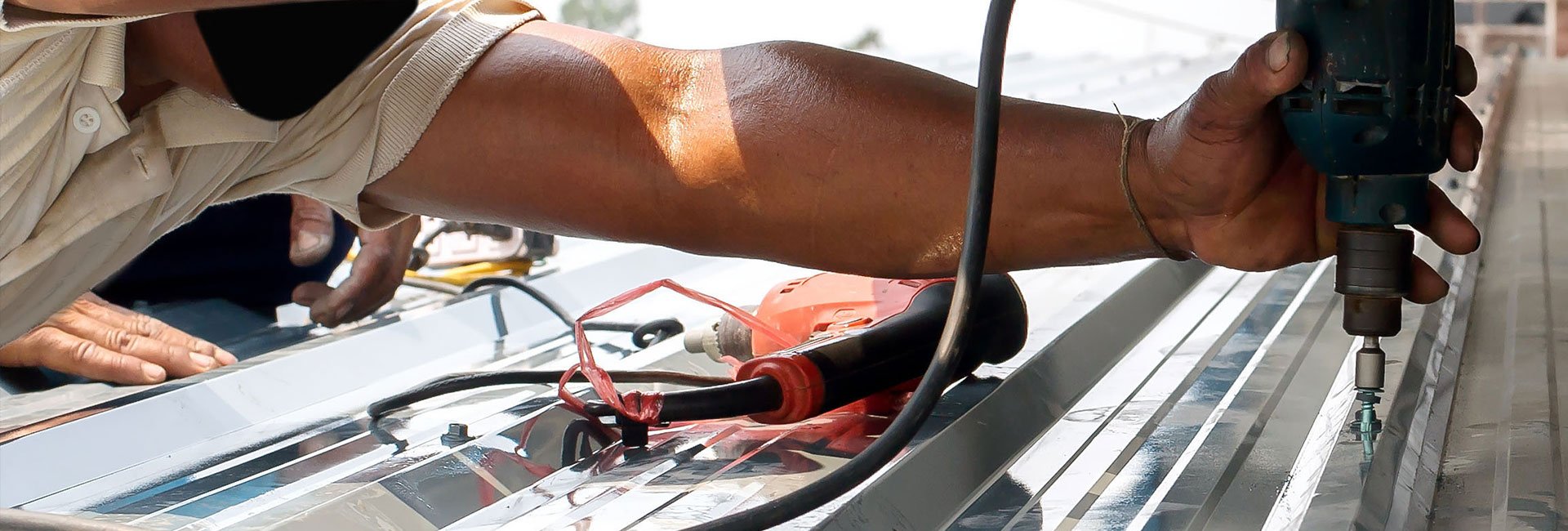
Though some boat builders are now manufacturing solar-powered yachts from scratch, it is also possible to convert yachts that run on diesel into hybrids that run on a combination of fuel and solar energy.
Yacht owners can then switch between the two to allow their boat’s battery to charge, or to reach higher speeds. The battery will automatically charge whilst in diesel mode.
Having a hybrid yacht means that you will never run out of energy to power your boat and appliances.
Get in touch with Knysna Yacht Company to start discussing your options!
If you have a fuel-powered yacht, it can be converted to a hybrid or solar-powered yacht. However, this is a job that you'll need to hire a professional for. If you are converting your boat’s existing combustion engine to a fully electric, solar-powered system, your boat’s engine will need to be removed and then replaced with electric motors. This is not something to undertake yourself and it is highly recommended that this work is carried out by experienced professionals.
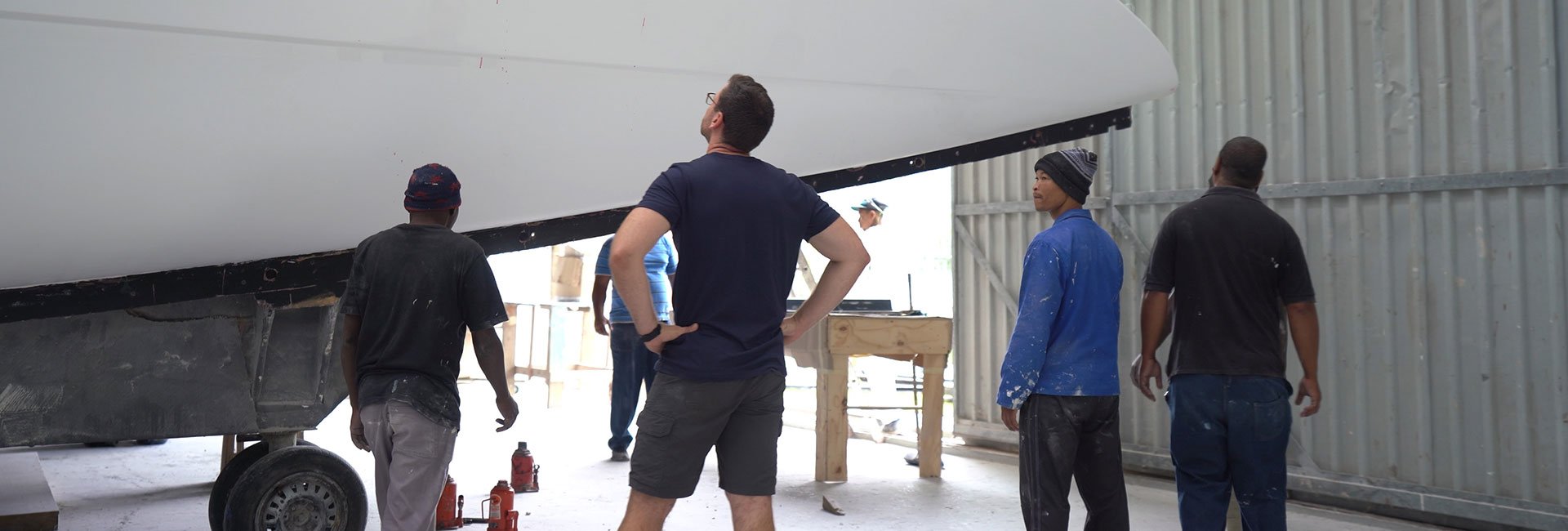
Have a look at what this Knysna yacht owner had to say about their experience of working with Knysna Yacht Company.
Yacht solar power is fast gaining popularity for the many benefits it offers. Which solar power system you select for your boat will depend on your particular needs. The four components of a solar power system can be purchased alone or as a kit.
You can install the yacht solar power system yourself, but hiring a qualified installer to do it for you is definitely recommended. A diesel-powered yacht can be converted into a hybrid or solar-powered yacht, but this process will require the services of a professional too.
We love hearing from our readers. To learn more about artisan, semi custom yacht-building and the KYC global family of Knysna yacht owners, visit our website or send us a message at enquiries@knysnayachtco.com
